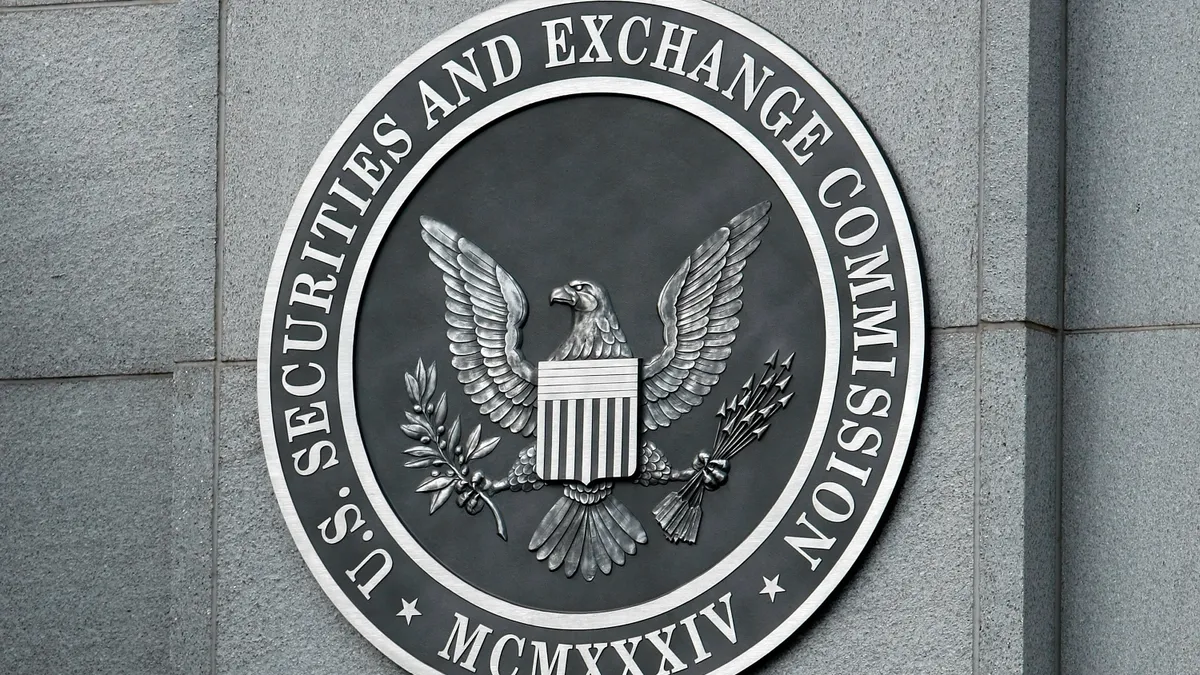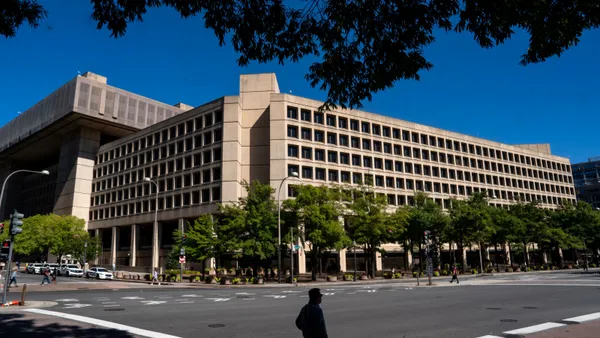Dive Brief:
- The Securities and Exchange Commission has reportedly dropped a requirement for U.S.-listed companies to report their scope 3 greenhouse gas emissions as part of their climate related disclosures, according to a Friday report from Reuters.
- The agency’s original 2022 proposal required companies to disclose scope 3 emissions “if material or if the registrant has set a GHG emissions target or goal that includes scope 3 emissions.” However, the SEC has since received over 16,000 comments on the proposal, causing it to repeatedly postpone its release date as it reviewed these comments. The climate disclosure rule is expected to be finalized in April.
- An SEC spokesperson told ESG Dive the agency “benefits from robust engagement from the public on rulemaking proposals regarding the economics, the policies themselves, and the SEC’s legal authorities” and, based on this public feedback, considers “possible adjustments to the proposals and whether it’s appropriate to move forward to a final adoption.”
Dive Insight:
The spokesperson declined to comment on the contents of the latest draft of the climate rule — neither confirming nor denying Reuters’ report — noting that the SEC “moves to adopt rules only when the staff and the Commission think they are ready to be considered.”
Though the SEC did provide an update on when it expected to announce its final climate rule in December — after missing an October release — it shared no further insight into what the ultimate version of this rule would entail, and whether it would include any amendments to scope 3 disclosure requirements. Given all of the backlash, many experts and corporations have since expressed doubts about scope 3 making the final cut in the rule.
Last year, SEC Chair Gary Gensler said the agency was aiming to avoid exceeding its authority as it finalized the rule, noting that its “remit is about investors making investment decisions,” and not acting as a climate regulator. However, soon after, Gensler also stressed that if the SEC did not publish a final disclosure rule or the rule was overturned by the courts, American businesses would be at the behest of the European Union’s climate disclosures.
The omission of scope 3 reporting could create a compliance conundrum for companies, especially as the EU’s Corporate Sustainability Reporting Directive has far more extensive scope 3 reporting requirements. The CSRD requires organizations across all sectors to collect and report data on emission generated from their value and supply chain. By contrast, the SEC’s original proposal only asked for scope 3 disclosures if the company considered them to be “material” and noted that smaller reporting companies would be exempt from such disclosure requirements.
Further, some U.S. states have introduced their own climate risk regulation. Last year, California passed two climate disclosure bills — SB 253 and SB 261 — that push for more climate-related transparency from large companies. SB 253, in particular, would require companies to start reporting their scope 3 emissions by 2027. The bill is estimated to impact more than 5,300 companies operating in California.
Once the SEC finalizes the climate rule, it will be put to a vote among its five commissioners, but it is not clear when this voting will take place, Reuters said, noting it was possible that the draft is revised before then. The agency will be required to give notice via a Sunshine Act Notice on the Federal Register at least five business days before the vote.















